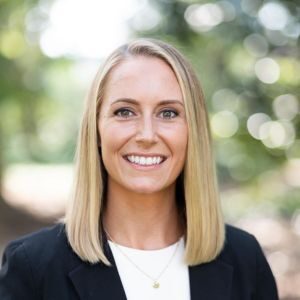Schools Need Tutoring Help from Their Communities — But Doing It Well Isn’t Easy
Bronson: Simply placing extra adults in the building is insufficient. 6 hard truths about what it takes to make a real impact on student outcomes

Get stories like these delivered straight to your inbox. Sign up for The 74 Newsletter
Local schools need help with academic support. Research from Harvard and NWEA shows that despite some initial post-pandemic catch-up, progress has largely stalled and the lowest-income students remain way behind grade level. Tutoring can help close this gap.
Community-based organizations may be eager to jump in to tutor students, recruit volunteers and hire staff to work in schools. But they’d be doing a disservice by not first taking a step back to consider the challenges and requirements to do this work well.
I’ve worn many hats in education: classroom teacher, district office leader, community organization leader and now as a managing director at Accelerate. When these groups work together to serve students, magic can happen — creating opportunity and access for those most in need.
But simply placing extra adults in the building is insufficient. An organization’s support must be grounded in research-backed, academically driven strategies. Good intentions, though a necessary starting point, aren’t enough to change academic outcomes.
In 2023-24, Accelerate invested in organizations providing tutoring during the school day. Of the students served, 97% qualified for free and reduced-price school lunch, 1 in 4 were English learners and 90% identified as Hispanic, Black or Native American. Here are six hard truths for community-based organizations about what it takes to make a real impact on student outcomes:
An impressive, longstanding record of youth service and/or family engagement doesn’t guarantee academic success. Just because your organization excels at mentoring, character development or after-school activities, that doesn’t mean you’ll seamlessly transition to in-school support. Consider things like legally required accommodations for students with documented disabilities, the constraints of schools’ master schedules and interpretation of complex academic data.
Schools need you now more than ever — don’t try to wing it. The learning loss crisis is real, and students need support that works. Start by identifying local schools’ specific needs, such as early literacy or middle school math. Then, follow the evidence on program design for effective high-dosage tutoring. Factors like subject areas, number of students served, grade level and a tutor’s training and experiences should inform your approach. This clarity is essential for realistically assessing your ability to determine which proven programs or academic partners best meet student needs and align with existing school interventions.
Be ready for accountability. It’s great that your work feels good, but does it actually do good? Be prepared for schools and funders to demand accountability for academic outcomes. Identify metrics for gauging your progress, execute necessary data sharing agreements with districts and then regularly analyze the data to mine for students’ individual skill and knowledge gaps in order to continuously advance their learning. Even better, agree upon specific academic targets with districts and schools in advance and use them to guide decisions about the model.
For example, Accelerate partner Read USA implemented an in-school tutoring program using a sophisticated progress monitoring and data collection system to set individual student objectives and provide tutors with with explicit next steps to address the specific skills (e.g., phonics, comprehension, fluency) in which their student needs extra practice. This real-time data formed the basis for a small-scale randomized controlled trial to measure impact on learning.
You need time to plan — more than you think. School support for a tutoring initiative can ensure a strong implementation. So build in a planning year, or at least a full semester, to get principals, teachers and other staff on board. Many critical decisions will need to be made: the students to be served, subject area(s), scheduling, tutor selection, etc. To guarantee success, these conversations must happen early and often.
For example, Accelerate grantee Compass spent a full school year planning a tutoring program for predominantly Native American elementary school students in Rapid City, South Dakota. They retained a coordinator with deep educational experience and ties to the local school system and identified a proven model that could be easily implemented by a diverse set of tutors. In the first year, Compass’s program reached some 200 students across four schools, with 85% receiving at least 90 minutes of English Language Arts tutoring a week from October 2023 to May 2024. This is more than many for-profit vendors provide.
Leverage your strengths and acknowledge your weaknesses. Build on what you’ve got: expertise with specific age groups, relationships with schools, families and neighborhoods or a pool of capable tutors. But don’t assume your skills are enough. Just because your organization successfully mentors children, that doesn’t mean you can teach them algebra. You need genuine academic expertise, if your organization doesn’t already have it. Consider hiring a coordinator with intervention experience or purchase a proven program or curriculum that comes with robust training for tutors. Hire academic experts, pay for professional development and commit to serious learning. There’s no shortcut to understanding how to teach core academic content.
Start small, prove your worth, then grow smartly. Begin with a manageably sized program, demonstrate your value by using data and grow by using digital tools to track both student progress and tutor attendance, while maintaining what works. When word spreads that you are improving outcomes, more schools will come knocking. But if their goals diverge from your organization’s — aka mission creep — you should pass on the opportunity to scale for scaling’s sake.
High-dosage tutoring is a serious academic intervention with specific guardrails. Schools and students need community-based organizations to come armed with enthusiasm and equipped with content knowledge, best-practice implementation, proven models and preparedness for challenges. The path isn’t easy, but the potential impact is immense. Accelerate’s newly republished report and playbook can help organizations plan and bridge the gap between community support and academic success. It’s time to turn good intentions into great results.
Get stories like these delivered straight to your inbox. Sign up for The 74 Newsletter


